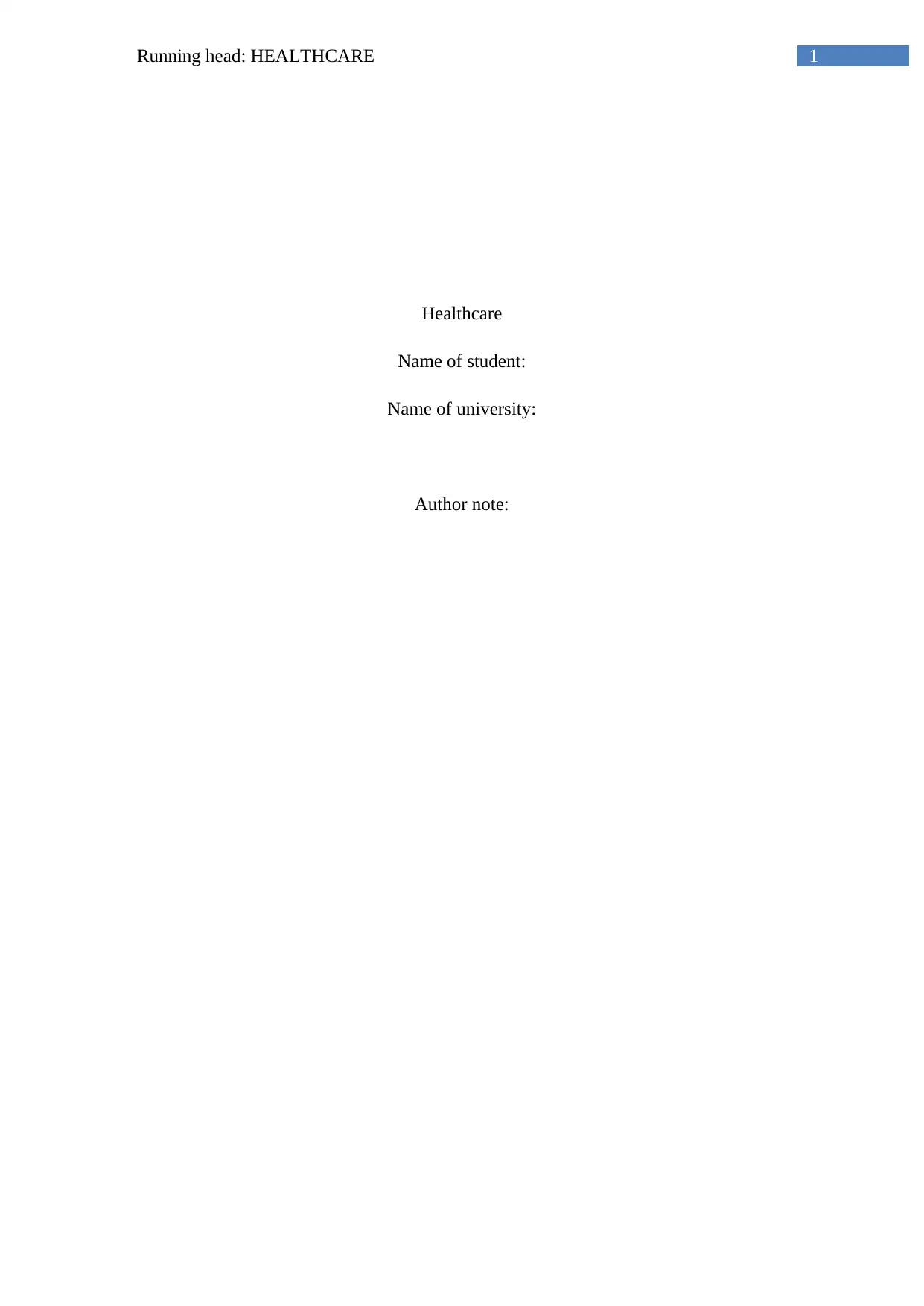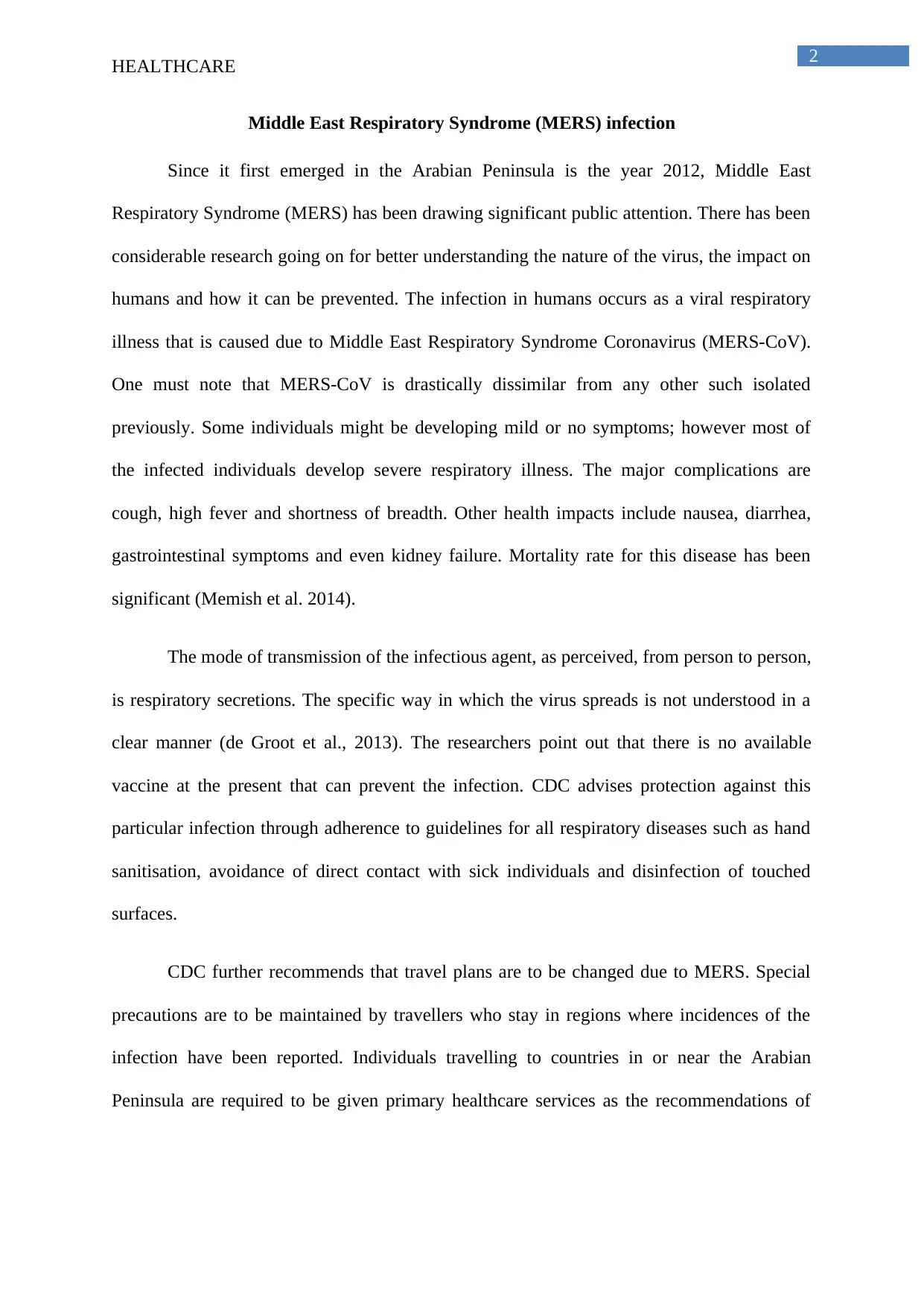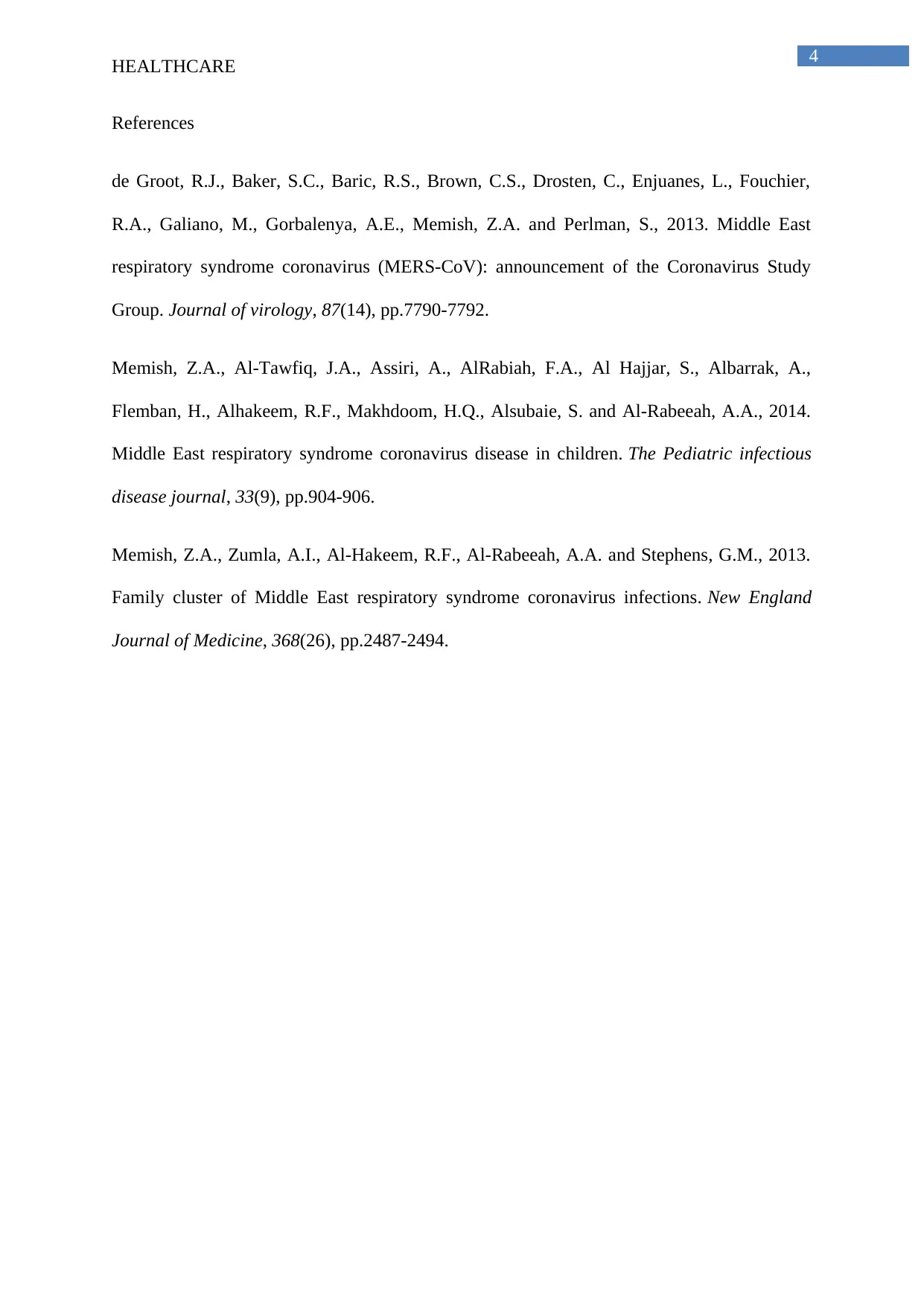Healthcare Report: Analysis of MERS Outbreak and Prevention Strategies
VerifiedAdded on 2020/04/15
|4
|558
|46
Report
AI Summary
This report examines the Middle East Respiratory Syndrome (MERS) outbreak, focusing on the MERS-CoV virus, its impact on human health, and preventative measures. The report highlights the virus's characteristics, including its potential for causing severe respiratory illness, such as cough, fever, and kidney failure, and its high mortality rate. It discusses the transmission methods, which are not fully understood, and emphasizes the absence of a vaccine. The report outlines the Centers for Disease Control and Prevention (CDC) recommendations, which include hand sanitization, avoiding contact with sick individuals, and disinfection of surfaces. Furthermore, the report highlights the importance of monitoring suspected or confirmed cases and the need for travelers to take precautions, particularly in regions where the infection has been reported. References to relevant studies, like those by Memish et al. and de Groot et al., are provided to support the analysis.
1 out of 4











![[object Object]](/_next/static/media/star-bottom.7253800d.svg)